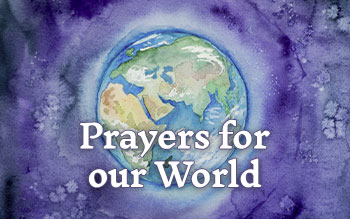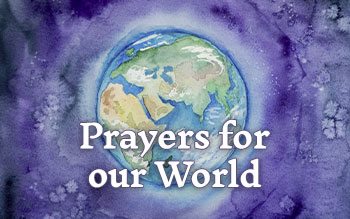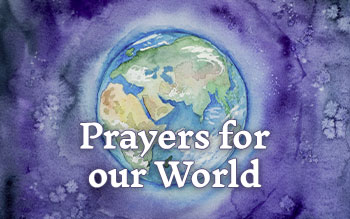Displaying items by tag: Afghanistan
Afghan Peace Talks: Politicians, Taliban Cite 'Tremendous Progress' in Moscow
Senior Afghan politicians and the Taliban said they made progress during peace talks in Russia, although they did not make any significant breakthrough.
The May 28-30 talks in Moscow came amid international efforts to end the nearly 18-year war in Afghanistan.
In a May 30 joint statement, the sides said they held "productive and constructive" talks focusing on a possible cease-fire, the "strengthening of the Islamic system," and "women's rights."
"Both sides have had tremendous progress, but some issues require further discussions," the statement read.
Suhail Shaheen, a spokesman for the Taliban's negotiating team, said that "spectacular progress" was made on issues including the withdrawal of international forces and a future political settlement.
However, Ata Mohammad Noor, a powerful regional leader, expressed some disappointment.
"Our expectations were higher," Noor said. "Our main message was on the cease-fire; a cease-fire could be the beginning of peace."
The sides met in Moscow on May 28 for a ceremony during which Russian Foreign Minister Sergei Lavrov called for the complete withdrawal of foreign troops from Afghanistan.
The three-day meeting was the second hosted by Russia in recent months.
Zalmay Khalilzad, the U.S. envoy seeking a peace deal with the Taliban, has held several rounds of talks with the militants in Qatar.
The sides have made progress, but the Taliban has so far rejected direct negotiations with Kabul.
Khalilzad has welcomed Russia’s peace efforts, although some U.S. officials have said Moscow was promoting itself as a power broker to challenge the U.S.-backed peace process with the Taliban.
The Taliban, which continues to stage daily attacks across Afghanistan, now effectively controls or influences about half of the country.
Pray: that all sides will be able to sit around a negotiating table.
Pray: for an end to the daily attacks by the Taliban.
Pray: for all those who are working towards brokering lasting peace in the country.
Pray: for a peace deal to be agreed and for lasting stability and prosperity to return to Afghanistan.
Afghanistan: Women Activists Fear Return Of Repressions
Khalida Khorsand, a 35-year-old rights activist from the western Afghan city of Herat, is skeptical about Taliban claims that it has dispensed with its strict rules against girls' education and women working.
The militant Islamic group made the declaration in the midst of recent peace talks with U.S. envoy Zalmay Khalilzad aimed at bringing an end to the long U.S. military presence in Afghanistan.
But Khorsand still remembers the notorious repressions under Taliban rule as a teenager in the western city of Herat when she risked the death penalty to study literature in a class disguised as a women's sewing group.
"After nearly 18 years without the Taliban in power, we now see that the Taliban are coming back in Afghanistan and there haven't been big changes for women's lives -- especially in rural areas," says Khorsand, who has dedicated much of her life since 2001 to advancing women's rights in western Afghanistan.
Even without the Taliban in power in Herat, Khorsand says, many hard-fought gains for women since the collapse of the Taliban regime already are under threat.
She attributes that situation to what she calls "a Taliban way of thinking" by many Afghans and a proliferation of unregistered religious schools in Herat teaching "radical Islam" to as many as 50,000 young people.
If the Taliban gets a role in the Afghan government as part of a peace deal, as Khorsand expects, she fears a floodgate will be opened for resurgent "radical Islamists" in Herat.
"I don't know why this has been allowed to happen under the current government of Afghanistan since 2014," Khorsand laments. "They are not paying attention to the rise of fundamentalists and radical groups in Herat.
"Now the city has become a safe haven for the radical groups that support the ideology of the Taliban," Khorsand says. "The fundamentalist groups in Herat are very organized and have a lot of money. They take the young people into madrasahs and teach to them the principles of the Taliban, and they are having an enormous impact on the young generation."
Those groups already have gained backing from municipal authorities for an unofficial ban on live musical performances in Herat and for a ban on celebrating Valentine's Day -- with both practices being declared "unIslamic."
In rural areas of Herat Province, where Khorsand worked for years to help women who are victims of domestic violence, Khorsand says she has seen disturbing signs of support for the punishments doled out by the Taliban under its strict enforcement of Islamic Shari'a law -- amputating the hands of thieves, publicly flogging people for drinking alcohol, and stoning to death those who engage in adultery.
Students at Herat's madrasahs deny being radical Islamists. But they also support a return to the prohibitions and punishments of the Taliban era.
"Allah says cut off the hands of a male thief and a female thief," says Jan Agha Jami, a 21-year-old at the Fakhr al-Madares madrasah in Herat. "When men and women commit adultery, whip them if they are single. If they are married, they should be stoned, and the Koran's rulings should be implemented in public.
"Music concerts are absurd because they are forbidden," Jami tells RFE/RL. "Music is bad for the mind, memory, and even human psyche. When a girl performs in front of strangers, the whole society is corrupted."
Reflecting on the growing popularity of such beliefs in Herat, Khorsand says "it makes no difference for women in Afghanistan if the Taliban exists or doesn't exist."
"The Taliban's way of thinking about women is the way many people are thinking in Afghanistan," she says. "A lot of Afghans have traditional ways of thinking and they believe the talk of the Taliban. Unfortunately, much of their way of thinking is against the rights of women."
Move Forward, Step Back
To be sure, Khorsand says there have been important advances for Afghan women since 2001 -- including language in the Afghan Constitution that enshrines the right to education and to work.
Women are members of parliament and can be seen on television, competing in sports, and performing in concerts in Kabul.
But the Afghan government since the collapse of the Taliban regime has included many conservative Islamists and former warlords whose attitudes about women are similar to the Taliban.
Sima Simar, the head of Afghanistan's Independent Human Rights Commission, says the gains for women since 2001 can easily be overturned and have rarely been implemented in rural areas where most Afghans live.
The 2018 Women, Peace, and Security Index by Georgetown University and the Peace Research Institute of Oslo ranks Afghanistan as the second-worst place in the world to be a woman. Only Syria was ranked worse.
That study notes that only 16 percent of Afghanistan's workforce is female and that half of all Afghan women have four years or less of education.
UNICEF, the United Nations children's agency, says only half of school-aged Afghan girls now go to school, and that only one out of five girls under 15 are literate.
Nearly two out of three Afghan girls are married when they are teenagers or younger. On average, they are sent by their parents into arranged marriages between the ages of 15 and 16.
Most imprisoned Afghan women have been jailed for so-called "morality crimes," such as leaving an abusive husband or demanding to marry a man of their own choosing.
Pray: That the steady advances being made towards improving womens rights will not be overturned.
Pray: That boys and girls will get equal access to good education, especially in the rural areas.
Pray: For improved employment opportunities for women.
Pray: For those who work with and speak up for the oppressed women and children in Afghan society - that their voice will be heard and acted upon.
Afghanistan: costs of war and peace
On 12 March, the US and Taliban finished their longest set of talks to date. After sixteen days of negotiating, the US special representative for Afghanistan reconciliation tweeted, ‘Peace requires agreement on four issues: counter-terrorism assurances, troop withdrawal, intra-Afghan dialogue, and a comprehensive ceasefire. We’re now “agreed in draft” on the first two.’ This is a positive development; previously they had only ‘agreed in principle’. The next step is for them to consult with decision-makers for approval of the draft agreement so that it can be finalised. This would pave the way for direct talks between the Taliban and the Afghan government, to address remaining issues. However, these talks have not involved the government, so President Ashraf Ghani’s administration is feeling excluded and suspicious.
Gender-based violence against Christians
Afghanistan, Libya, North Korea, Pakistan, and Somalia are the five worst places for women to live, according to the 2019 World Watch List of ‘50 most difficult places to be a Christian’. The list reports that, in contexts which restrict women’s legal rights to equal representation, minority Christian communities are especially vulnerable to having their women and girls sexually attacked, forcibly married, subjected to domestic abuse, stripped of their inheritance, or even killed - all with impunity. Sexual violence is used as a means of power and control against Christian women. Discrimination based on stereotypical roles of men and women is one of the most widespread human rights violations worldwide. It can assume cruel forms and deprives many women and girls of their rights to life, freedom, and respect for human dignity. In Afghanistan, ‘women found to be married to new converts from Islam and sharing their husbands’ Christian faith, are punished by being raped. The same happens with children of converts who are at risk of child abuse.’
Afghanistan - ongoing prayer needed
There is very serious and heavy fighting going on in many areas in the country. The defense minister Tariq Shah Bahrami said that battles are ongoing in at least ten provinces in the country and that the level of threats are beyond the capabilities of government. The battles are currently simultaneous going on especially in these provinces: Ghazni, Uruzgan, Faryab, Jawzjan, Sar-e-Pul, Kunduz, Badghis, Baghlan and some other areas.
On Wednesday Afghanistan’s Lower House of Parliament summoned the heads of the security institutions for the second time in a week on the situation in the country, particularly on Ghazni and Uruzgan provinces (where many Hazaras live).
The defense Minister made this sad statement: “To be honest, the level of threats is very high and the current facilities available to security and defence institutions is not enough to repel these threats. Afghanistan’s enemies are plotting to bring us to our knees. The enemies and supporters of enemies (neighbouring countries etc.) of the people of Afghanistan including the backers of terrorists have made their final plots to break our back.”
Another statement from the Minister of Interior Mr. Barmak shows their desperation: “the minister of defense and myself remain busy on the telephone until 2am and 3am (daily); we call here and there to this and that commander and get updates on the situations, and the commanders shout for help.”
The Taliban have attacked and conquered several areas of the minority Hazara Shia community and it is feared that they will commit many atrocities there. Often the Taliban killed Hazaras and even targeted their mosques and schools. Thousands of Hazaras are fleeing their villages and many have come also to the capital.
This situation is like a desperate cry, from the ministers and commanders on the field and the people that are suffering and we are wondering that how long the Army is able to push back the Taliban.
Please pray with us urgently and strongly
For the Lord to intervene in this very desperate and increasingly hopeless situation.
That the Taliban Forces would be defeated soon and that the government troops will be able to defend their country.
Especially now that they will be driven out of the Hazara areas and for protection of these vulnerable community.
For wisdom for the government and especially the Defence Ministry and Army and that they will receive all the help they need.
Thank you for standing in the gap for this embattled country. This has gone on for so long but we believe that as we earnestly pray for this country, once again we will see a breakthrough and a defeat of this that try to destroy this country.
We believe that even this situation will turn around as we pray!
Afghanistan: battles still raging
Defence minister Tariq Shah Bahrami has said that battles are ongoing in at least ten provinces. He added, 'To be honest, the level of threat is very high and the current facilities available to security and defence institutions are not enough to repel these threats. The enemies of the people of Afghanistan including the backers of terrorists have made their final plots to break our back.' The Taliban have attacked and conquered several areas of the minority Hazara Shia community, and it is feared that they will commit many atrocities there. They have even targeted their mosques and schools. Many Hazaras are fleeing their villages and coming to the capital. The people are suffering, and wondering how long the army will be able to push back the Taliban.
Afghanistan: convert faces death if deported
It is illegal to be anything other than a Muslim in Afghanistan, a tribal society where leaving Islam is seen as a betrayal of the tribe. Christians who are discovered may be sent to a psychiatric hospital, on the grounds that no sane person would leave Islam. Baptism is punishable by death. Radical Islamic militants rule in over 40% of the country. If the Swiss government succeeds in deporting an Afghan Christian convert (known as AA), he faces persecution, imprisonment, or death. A religious liberty advocacy group appealed to the European Court of Human Rights on his behalf on 18 October, after the Swiss authorities refused his application for asylum. The Swiss were accused of ‘turning a blind eye to the situation of religious minorities in Afghanistan’.
NATO focusses on Afghanistan
NATO leaders moved beyond the demands of Donald Trump for higher defence spending, and focussed on ending the long war in Afghanistan, in the second day of a summit in Brussels underscored by transatlantic tensions. They welcomed non-NATO partners, including Afghan president Ashraf Ghani and Ukraine's Petro Poroshenko, to focus on policy rather than politics. On the first day, Theresa May had announced an additional 440 personnel for the Resolute Support mission in Afghanistan, saying, ‘I think that shows when NATO calls, the UK is one of the first to step up.’ NATO chief Jens Stoltenberg wants leaders to agree to fund Afghan security forces until 2024, despite public fatigue in Western countries about their involvement in the conflict. US officials told Reuters, ‘Washington is preparing another review of strategy’, a year after Trump begrudgingly agreed to extend involvement in the 17-year-old war.
Afghanistan: ceasefire
On 7 June, president Ashraf Ghani announced a ceasefire with Taliban insurgents until 20 June, coinciding with the end of Ramadan, but said fighting against IS will continue. He added that the ceasefire is an opportunity for the Taliban to realise that their violent campaign is not winning hearts and minds but further alienating people. He recently offered to recognise the Taliban as a legitimate political group, in a proposed political process that he said could lead to ending more than sixteen years of war. At that time he proposed a ceasefire, releasing prisoners, new elections involving the militants, and a constitutional review in a pact with the Taliban, to end a conflict that last year alone killed or wounded over 10,000 Afghan civilians.
Iraq and Afghanistan: elections
Iraqi religious figures and institutions are debating the 12 May elections in public. Some call for boycotting them, some recommend voting for new candidates. The Shi’ite religious establishment, believing the previous ‘corrupt people’ robbed the nation, insists that politicians who failed to live up to executive or legislative responsibility must not be re-elected: ‘People must not vote for them again, even if they are members of their clan or sect’. Iraqi people groups have strong tribal loyalty in constituencies. Many see voting as ineffective. In Afghanistan long-delayed elections should be possible on 20 October 2018 despite major security and logistic challenges. Lack of security allowed a suicide bomber to kill 57 and injure 119 at a voter registration centre in Kabul, where civilians had gathered to receive identification cards that would enable them to vote. Pray for God’s protection over all registration centres, and the police officers guarding them in the runup to the elections. See









